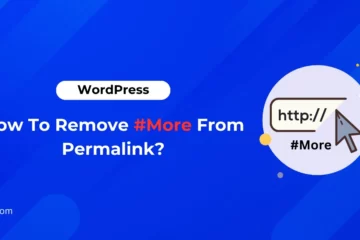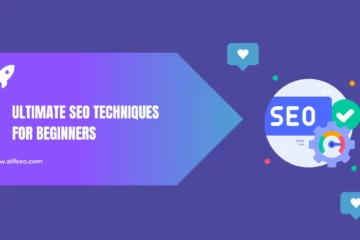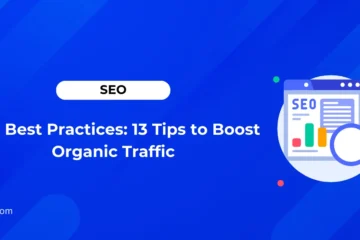Google Ads vs SEO – Which is Best For Your Marketing, 7 Benefits of Google Ads to Grow Your Business, and When it comes to jump-starting your web traffic and through your business, paid media can be attractive due to its ability to bring your company in front of real people looking for products or services like yours.
But the largest and most expensive way to advertise on the internet is Google Ads. Anyone choosing to run a Google Ads campaign for their business should be willing to pay a high price, starting at $5 per click and potentially exceeding $50 for some keywords.
And this is just for one click (not a conversion or a lead).
The actual cost of pay-per-click ads is even more disheartening when we do the conversion calculations. If you’re positive, you can expect 10 percent of your Google Ads traffic will convert (less than 4 percent if you’re realistic). When you’re paying $10 a click – your cost-per-lead comes in at $100 that’s not that low.
Any business that is depending on Google Ads to expand will plan to pay at least $5,000 per campaign. We should be sadly always prepared not to earn an immediate return on investment.
Yes, a smart, strategically paid media strategy can improve the performance and effectiveness of your campaigns on Google Ads. But even then, it takes experience, effort and is by no means an automated method to maximize search advertising with the right targeting, campaign structure, marketing, and bid strategy.
Even experienced digital marketers can end up investing thousands of dollars in Google Ads with no measurable ROI to show at the end.
So investing a large portion of marketing revenue for such expensive lead generation isn’t the best way to spend a marketing budget for small to medium-sized enterprises. Still, hundreds of companies continue to invest tens of thousands of dollars in paid search marketing despite the reality that many of those costly clicks never turn into real business.
Many businesses have not even designed their websites to accurately monitor their campaigns’ conversion levels and results, and are in reality unaware of their marketing’s true profitability.
The paid search model alone isn’t the right choice for many brands. However, investing in SEO is much more cost-effective, and has long-term rewards that far outlast what campaigns Google Ads can produce.
Google Ads Allow traffic to be rented. SEO Helps you make it your own.
The key challenge of depending solely on paid quest for growth campaigns is not only in the complexities of ad bidding and price scores but also in the pay-per-click model.
For paid search ads, you are basically leasing Google clicks. You can buy those clicks on your credit card, but those clicks are gone as soon as your budget caps out or you stop doing the marketing.
We all know that owning rather than renting, is safer. If a website occupies a top spot in the SERPs, it gets free and permanent access to all of that. While there are many ways to expand, organic rankings are still king, because no other marketing strategy can carry so much traffic to your site for so little.
Google will make your Investment capital. You Wouldn’t.
Google ads is a source of revenues. Google has managed to increase its revenues every year since the launch of Google Adwords in 2000, even during the Great Recession in 2009.
So although recommendations on Google Ads may help you run slightly more efficient campaigns, they should be taken with a grain of salt. Basically, Google Ads needs to make money, and too often they specifically turn their recommendations into more revenue for their site, rather than increased ROI for their company.
Be aware what Google Ads offers recommendations. Of the members of Google Ads with whom I have worked in the past, several recommended advertising settings that allowed Google more control over campaigns — whether paying higher prices per click or allowing greater money to be spent. Their suggestions don’t always make campaigns more cost-effective or competitive.
In comparison, if you do it correctly, SEO is truly easy to win. Optimization needs you to learn and understand the process, but any business owner can do it right as long as they have the right tools and basic understanding of the content signals and algorithms from Google.
There are some very successful, higher-priced options for stimulating growth, such as white-hat, building quality ties, but it takes a lot of work and time to earn press mentions. On-page SEO is, however, completely under the reach of the webmaster, and is not that costly.
To be competitive, CPCs are too small. Organic search traffic is Open.
Google Advertising has been two decades long enough for any niche in the industry to run ads on Google. Most of the verticals have finely tuned their ads at this stage and configured their websites for conversion. This is a floor high for newcomers. CPCs have become so large in the most competitive markets, that businesses are running unprofitable Adwords campaigns.
Google Advertising has been two decades long enough for any niche in the industry to run ads on Google. Most of the verticals have finely tuned their ads at this stage and configured their websites for conversion. This is a floor high for newcomers. CPCs have become so large in the most competitive markets, that businesses are running unprofitable Adwords campaigns.
As the former CEO of a ticket reselling app, I bought millions of dollars in search ads to compete with Stubhub and Vividseats in the secondary ticketing market, but we found that our competitors were running unprofitable advertising campaigns just to buy revenue and increase their market share.
Since pre-IPO business valuation is calculated as a multiple of sales and growth rates (not net income or profitability), it is common to see these businesses losing money on their PPC ads. As a result it is ill-advised to compete with them. The more you invest, the greater the loss.
Google Ads Needs a Credit Card. SEO wants Creativity.
Just bring your credit card into Google and start bidding on your keywords, and raise your CPCs, it doesn’t take imagination. Businesses that are based on Google Ads are not defensible because they will ultimately stop traffic generation and lead until their budget runs out.
SEO needs more imagination than marketing with pay-per – click, since it is multidisciplinary. Google’s algorithm is becoming more complex, which means more chances for sites like yours to optimize their strategy of capitalizing on the content signals that Google bots search for.
Other Channels of Advertising that are more profitable than Google Ads
1. SEO Local
For small businesses, getting your site listed across all company directories and getting local quotes on Google Maps is fairly inexpensive (less than $100), which can give you a big boost in local search results. Nearly one-third of all mobile searches are location-based queries and local SEOs can help search engines better understand your location, the markets that you serve, and how customers reach you. Local SEO is one of the cheapest growth strategies you should try-it tends to be one of the most efficient from a marketing dollar perspective.
2. Advertisement on Facebook
When you do want to follow paid advertising, there is a chance for Facebook Ads to reach very broad audiences and I frequently see well controlled Facebook campaigns outperform PPC campaigns. CPMs are 30 percent cheaper than PPC, and user-collected Facebook data allows marketers to tailor ads to very specific audiences. While Google Ads ‘appeal is the connection to search intent, Facebook CPCs’ affordability is better for small to medium-sized enterprises on a more stringent budget. In general, I find it easier to create effective campaigns on Facebook Advertising than on Google.
3. A Good Strategy for SEO content
Targeting long-tail keywords with low difficulty and creating customized landing pages is a relatively low cost way for useful keywords to gain organic rankings. A good SEO content strategy will go after less competitive search terms and will provide users with useful, valuable content not only to satisfy the content-quality signals from Google, but also to establish your company as an industry expert and authority. Check out my free ebook about on-page optimization for comprehensive advice on how to build a content strategy that will help increase your keyword rankings.




